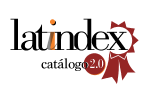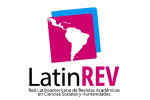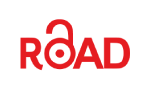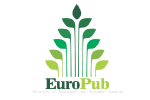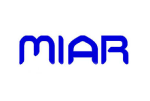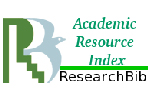Educational management in the curriculum of the subject of Cultural and Artistic Education
DOI:
https://doi.org/10.18537/ripa.15.02Keywords:
educational management, educational center organization, educational innovation, Cultural and Artistic EducationAbstract
The research focuses on the processes, activities, tools and resources that the educational director or administrator must develop within the framework of the educational management of a school establishment, focused on the area of Cultural and Artistic Education, which It is part of the objective of the national educational system, defined in the high school profile. The strategies and methodologies that are managed as educational management give rise to the optimal implementation of the educational curriculum; even more so, introducing educational innovation mechanisms that allow students to develop their skills and respond assertively to the challenges of today's society. The processes to be managed are described, under the regulations of educational quality standards provided by the Ministry of Education, the dimensions of educational management and planning through plans to support and monitor teaching practice; which allow the teacher in the area of Cultural and Artistic Education to achieve the stated objectives of the subject; as well as, adjust educational contexts to the needs of each student and enable artistic and cultural projects with high impact on society to be developed. In summary, the way of organizing an educational center in terms of the educational management of the curriculum, the different planning instances (macro, meso and micro), the methodology based on the educational philosophy of the school and the teacher's methodological strategies, all of them linked and managed in a way that allows meaningful learning and awareness of the same reality.
Downloads
References
Agreda, A., & Pérez, M. (2020). Relación entre acompañamiento pedagógico y práctica reflexiva docente. Espacios en Blanco. Revista de Educación, 2(30), 219-232. https://doi.org/https://doi.org/10.37177/UNICEN/EB30-273
Betancourt, E. (2002). La gestión educativa ante la violencia intrafamiliar en estudiantes de básica primaria. Universidad de La Salle.
Cantillo, B., & Calabria, M. (2018). Acompañamiento pedagógico: estrategia para la práctica reflexiva en los docentes de tercer grado de Básica Primaria. Colombia: Universidad de la Costa.
Chambi, N., Díaz, R., Rivera, J., & Romani, Ú. (2022). El líder educativo y el adiestramiento colaborativo en línea en un colegio de Puno, Perú. Scielo Preprints, 1-14. https://doi.org/https://doi.org/10.1590/SciELOPreprints.4070
Delors, J. (1996). La educación encierra un tesoro. Informe a la Unesco de la Comisión internacional sobre la educación para el siglo XXI. Madrid: Santillana/Unesco.
Digón, A. (2021). Experiencia de enseñanza-aprendizaje con aula virtual en el acompañamiento pedagógico debido al Covid-19. Apertura, 13(1), 20-35. https://doi.org/http://doi.org/10.32870/Ap.v13n1.1957
Garnier, L. (2009). Ética, estética y ciudadanía: Educar para la vida. En Ministerio de Educación Pública, Programa de Educación Musical. MEP, Ministerio de Educación Pública de Costa Rica.
Gil-Álvarez, J., Morales-Cruz, M., & León-González, J. (2023). La gestión educativa en la universidad inclusiva. Transformación de sus procesos desde una educación personalizada y participativa. Revista Metropolitana de Ciencias Aplicadas, 6(1), 47-54.
Gutiérrez-Delgado, J., Gutiérrez-Ríos, C., & Gutiérrez-Ríos, J. (2018). Estrategias metodológicas de enseñanza y aprendizaje con un enfoque lúdico. Revista de Educación y Desarrollo, 45, 37-46. https://www.cucs.udg.mx/revistas/edu_desarrollo/anteriores/45/45_Delgado.pdf
MINEDUC. (2012). Estándares de calidad educativa. Ecuador: MINEDUC, Ministerio de Educación.
MINEDUC. (2017). Manual para la implementación y evaluación de los estándares de calidad educativa. Ecuador: MINEDUC, Ministerio de Educación.
MINEDUC. (2019). Currículo de Educación Cultural y Artística, Subnivel Elemental. MINEDUC, Ministerio de Educación. https://educacion.gob.ec/wp-content/uploads/downloads/2019/09/EGB-Eelemental.pdf
MINEDUC. (2019). Currículo de Educación Cultural y Artística, Subnivel Media. MINEDUC, Ministerio de Educación. https://educacion.gob.ec/wp-content/uploads/downloads/2019/09/EGB-Media.pdf
MINEDUC. (2019). Currículo de Educación Cultural y Artística, Subnivel Preparatoria. MINEDUC, Ministerio de Educación. https://educacion.gob.ec/wp-content/uploads/downloads/2019/09/EGB-Preparatoria.pdf
MINEDUC. (2023). Reglamento General de la Ley Orgánica de Educación Intercultural (Segundo Suplemento). MINEDUC, Ministerio de Educación.
Nieto, J. (2001). Modelos de asesoramiento a organizaciones educativas. En J. S. (coord.), Asesoramiento al centro educativo. Colaboración y cambio en la institución (págs. 147-166). Barcelona: Octaedro-EUB.
Rico, A. (2016). La gestión educativa: Hacia la optimización de la formación docente en la educación superior en Colombia. Sophia, 12(1), 55-70.
Segovia, J. (2010). Comprender y redireccionar las prácticas de asesoría. Revista Iberoamericana de Educación, 54, 65-83. https://doi.org/https://doi/org/10.35362/rie540542
Published
Issue
Section
License

This work is licensed under a Creative Commons Attribution-NonCommercial-ShareAlike 4.0 International License.


